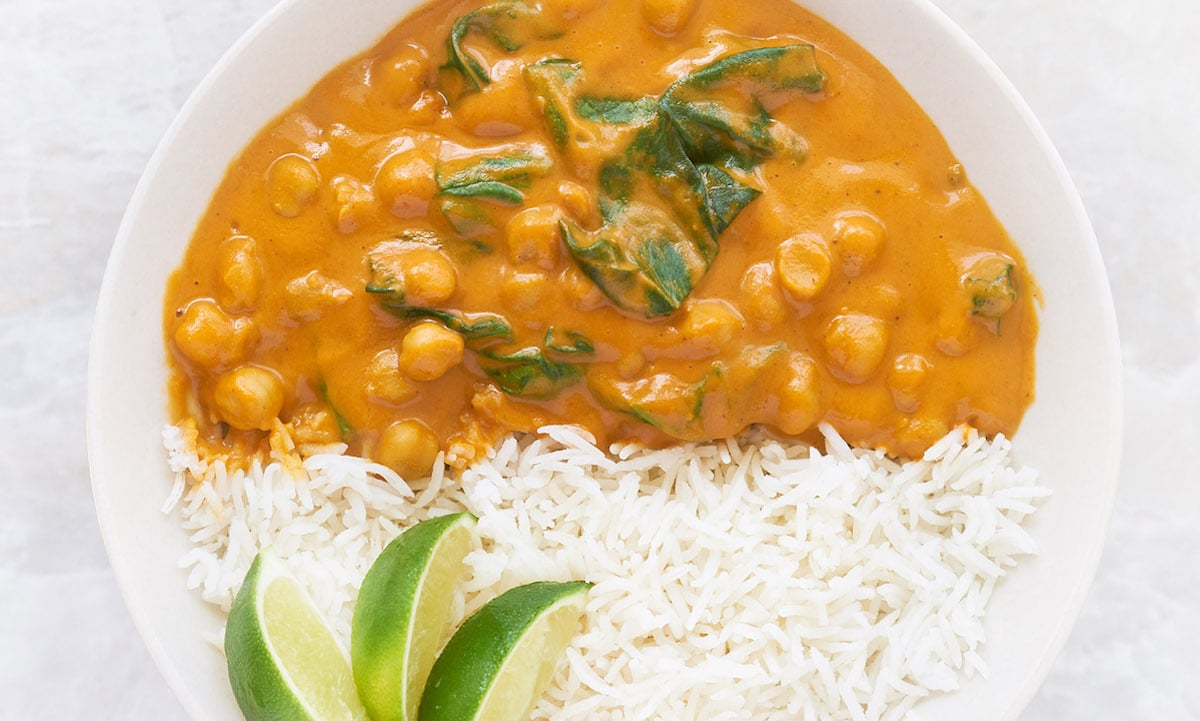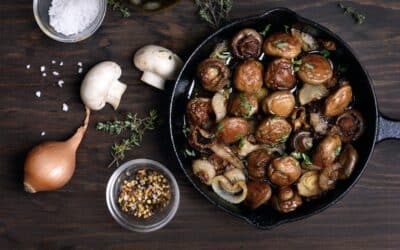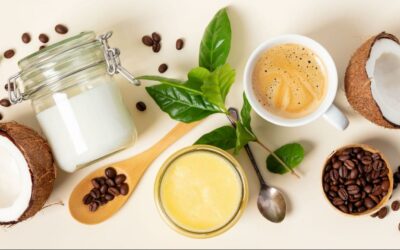Although ghee has been a cooking staple for many cultures around the world for centuries, it has recently gained popularity among new audiences. We’ve received countless questions on this shelf-stable dairy product, so we’re clearing up any confusion.
What is Ghee?
Ghee, also known as clarified butter, is butter that has had all water and other solids removed leaving only the fat. In comparison, traditional butter is approximately 80% fat (plus 16% water, 2% salt, and 2% other milk solids), while ghee is 100% fat. Ghee is most commonly made from cow’s milk, but there are also varieties made from sheep, goat, buffalo, or other mammals’ milk.
First butter is made, then it is melted and strained. Although the lactose and proteins are removed during this process, traces may still be present. Therefore ghee should be avoided by those with lactose intolerance or a dairy allergy.
Is Ghee Dairy?
Yes! We get this question all the time, but it is certainly a dairy product. Ghee is made from milk, with no other ingredients added. Folks following a paleo diet have stirred up confusion, since they typically eliminate other forms of dairy, but allow ghee.
Ghee’s History
Ghee has been used in traditional Indian cuisine for centuries. By clarifying the butter, it allows it to be shelf stable since there is no water to harbor harmful bacteria. In India’s warmer climate, spoilage is a big concern, so a non-perishable form of an otherwise perishable product had great appeal.
However, modern technology has made refrigeration more widely accessible. For those without it, there are other shelf-stable cooking fats that are derived from plants.
Ghee’s Role in Hindu Tradition
In addition to its use for cooking, ghee plays a vital role in certain rituals for practitioners of Hinduism–the major religion of India.
As the story goes, the Hindu deity Krishna loved butter. In Hindu tradition, milk is symbolic of the fluid mind. Milk is the fluid mind that has doubts about God. To that you add curd, which is the thought of God. When you churn the milk and curd, the result is butter. Butter is the solid mind that has no more doubts about God. It’s the mind of a devotee of God. This is why Lord Krishna loves butter. Because he loves the mind of a devotee. Ghee is the result of refining butter. Ghee, therefore, represents the clarified solid mind that has no more doubts about God. This is an enlightened mind—a mind that’s not deluded by anything. It’s a mind that sees reality as it is. This is why ghee is used in Hindu traditions and ceremonies, because ghee signifies enlightenment.
Fortunately, in much of southern India, ghee can be replaced by coconut oil for arti—a Hindu ritual of devotion to Krishna. If you take coconut fruit and refine it, you get coconut oil, which is the refined solid mind that has no more doubts about God. It has exactly the same symbolism as ghee. The important symbolism of the ritual can be preserved with this substitution that is better for your health, the planet, and the animals.
Ghee and Your Health
Ghee is pure fat, and predominantly saturated fat. While fat is an important part of a healthy and balanced diet, we should be limiting saturated fat to 5-6% of our total calories, according to The American Heart Association. One tablespoon of ghee alone delivers 10 g of saturated fat (and 14 g of total fat). For a 2000 calorie diet, that’s 4.5% of your calories right there. If you’re cooking with ghee, you can easily end up with more than one serving, and be vastly overconsuming saturated fat.

Excessive saturated fat consumption can increase your risk of heart disease, contribute to insulin resistance and type 2 diabetes, and increase systemic inflammation. A study comparing ghee and olive oil consumption found ghee to increase non-HDL cholesterol levels, further showing the link between ghee’s saturated fat and increased cardiovascular disease risk.
Additionally, ghee is also one of the most contaminated substances due to industrial atmospheric pollutants, many of which are lipophilic—meaning they stick to fat cells. So, you have cows accumulating and storing these chemicals in their bodies through dietary exposure, and when they produce milk, the fat cells of the milk come with toxic chemicals. When butter is refined to make ghee, which remember is pure fat, you have a high concentration of toxic chemicals that pose a potential risk to human health.
We should be focusing instead on consuming mono- and polyunsaturated fats through our diet, like those found in avocados, nuts, seeds, and other plant-based foods.
How to Replace Ghee
Fortunately, ghee can be easily replaced in any recipe! If sauteing, some options include refined coconut oil and avocado oil. If topping toast, then avocado, nut butters, or our vegan butter recipe are great alternatives as part of a savory breakfast. If looking for an indulgent mouthfeel in a curry, then coconut cream, tahini, or any cooking oil typically works well.

If you have a tried and true recipe, shoot us an email and one of our chefs will get back to you with the best recommendation for your specific dish! We’ll help you realize you don’t need to sacrifice flavor or give up your favorite foods when removing dairy from your diet. Or check out our Dairy-Free Butter Chickpeas recipe for a quick, comforting meal that’s perfect for a weeknight.
Looking to replace dairy in other parts of your diet? We have all the substitutions you need!
Special thanks to Dr. Sailesh Rao of Climate Healers for help with ghee’s religious symbolism.








